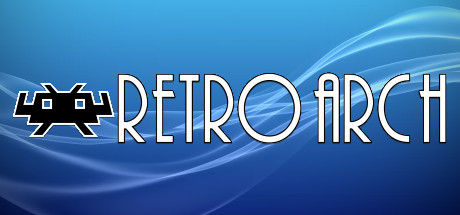
RetroArch is coming to Steam as a free download on July 30, marking what appears to be the largest non-commercial emulation launch ever on Valve’s digital download storefront. The news came on Friday via an announcement from Libretro, the open source development collective that maintains the RetroArch launcher app for a massive range of operating systems.
In an email interview with Ars Technica, Libretro’s Daniel De Matteis claimed that the software’s impending launch did not require any conversations with Steam over the storefront’s rules about emulation. However, there does appear to be a fuzzy dance going on with this launch, as Friday’s announcement includes the following curious claim: “While there is nothing particularly [sic] about RetroArch or the Libretro API that has anything to do with emulators, most do… use it for this purpose.” We’re not sure what other use case is enabled by RetroArch, honestly. Its menu system revolves around finding, downloading, updating, and booting “cores” that are dedicated to emulating classic video game consoles, and by default, it leads users to cores that advertise compatibility with games from popular consoles made by Nintendo, Sega, Sony, and others.
Valve doesn’t appear to have any public-facing rules about whether emulators are allowed on Steam, and poking around Steam reveals a few limited emulator apps. A pair of announcements about rules for Steam’s discussion boards, meanwhile, make patently clear that discussions about emulators are expressly forbidden—and are classified as a “piracy” topic. Valve representatives did not immediately answer our questions about RetroArch.
-
RetroArch’s current vanilla front-end, which users can skin and customize to their heart’s content. Before loading any software, however, users will need to load a “core,” which is essentially a system-specific emulator.
-
Don’t have any cores? Never fear. RetroArch will point you to dozens of them to download directly to your computer.
-
It’s a lot of options, even multiple per popular console. But many require a BIOS file, which you can either rip directly from a console you own or find in other ways.
-
-
The list is quite long, and it’s all built into RetroArch directly.
-
The PS3-like interface also lets users turn RetroArch into a multimedia-viewing app, complete with audio, photo, and video tabs.
The version of RetroArch coming to Steam on July 30 will be identical to the one you could otherwise download from RetroArch’s official site, though the team is limiting Steam’s launch to Windows “to make sure we can handle the demand” before adding MacOS and Linux options down the line. Thus, whatever you download from Steam won’t include any emulators, per se. Instead, the app will direct you to emulator download options with only a few clicks through its default, online-connected interface. Crucially, RetroArch does not include download links within its app to console-specific BIOS files. For most RetroArch emulators, you’ll need one of these to boot any software, and if you don’t rip a BIOS file directly from your legally owned console, you may enter a legally gray area as a result. (The same goes for whatever games or ROMs you load into said emulators, as well.)
De Matteis tells Ars that this Steam version has been in the works “for a few months now,” and he expresses specific interest in using Steamworks’ Web API for future RetroArch builds. If such features are built, he says, that would create a fork in RetroArch’s build distribution; until then, what you download from RetroArch’s official site will be identical to the builds on Steam. (In a long-story-short explanation, De Matteis says that the Web API may prove necessary for the following red-tape reason: “There are certain licensing ‘how many angels can stand on the head of a pin’ issues that pertain to the Steamworks SDK and how the GPL license interprets what constitutes a system library or not.”) “We have bandied about the term ‘cross-platform game console’ a lot, and a lot of people might not really know what that means,” De Matteis says. “But we hope as we add more and more platforms on which RetroArch can run, people will start realizing what we’re going for—and why porting applications to the Libretro API is such a powerful and compelling thing that has nothing but positive benefits for users and developers alike.”
This article has been updated to clarify emulator availability on Steam.
https://arstechnica.com/?p=1535297

